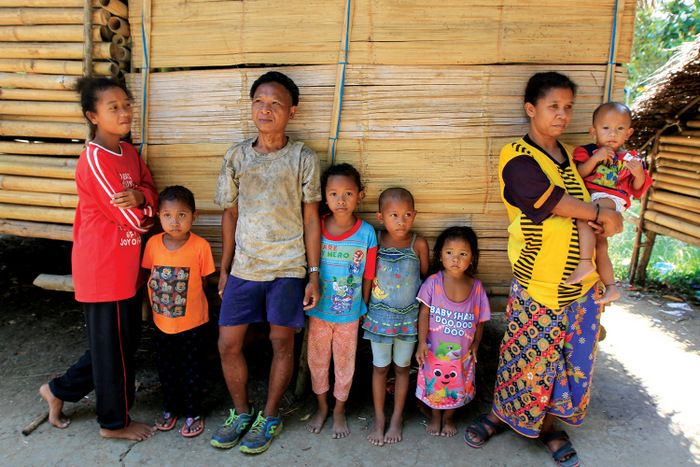Editorial: Do It at Own Peril


By Fathol Zaman Bukhari
This may be an old tale but retelling it is timely in view of recent events. It has to do with the Perak government’s refusal to recognise the Orang Asli’s (OA) right to their customary land. And it was uttered by none other than the Menteri Besar himself. Although Faizal had withdrawn his statement and apologised, it is puzzling how he made such a conclusion.
Tijah Yok Chopil, an OA activist, felt that the MB was ill-advised and, perhaps, was unaware of the existence of customary land which the OA had been passing down from generation to generation, a custom practised since time immemorial. Even the British colonists were respectful of the indigenous people’s rights.
During the Malayan Emergency (1948 to 1960) security posts were established in the OA heartland to keep Communist insurgents from influencing the people. It was also to ensure that their settlements were adequately developed and protected.
The practice was continued in the 1970s and 1980s. The responsibility was taken over by the Malaysian Army. I can attest to this as I was stationed at Pos Poi, Pos Brooke and Pos Telanok in Cameron Highlands in the mid-1970s. Our task was to secure the jungle “forts” and protect the inhabitants. It was not an arduous task but something we soldiers liked. And that was how I came to respect these ‘jungle people’ for their honesty, naivety and simplicity, qualities which we city folks are lacking.
The authorities, Tijah insisted, should recognise OA as the natives of the land with rights. She wondered how the MB could have made such an assumption without alluding to facts. “It’s easier to deny that customary land exists and not include this fact in the state constitution,” she posited.
According to Tijah, customary land in Perak is divided into 21 zones and a member of an Orang Asli community would not encroach into an area belonging to another community. This ruling was so strictly observed that if a marriage between persons of different areas were to end in a divorce, neither the woman nor the man could claim any right to the other’s customary land.
Each of the 21 zones is divided into three areas: a residential area, an area where food is sourced and an area of the forest which is allowed to heal after years of exploitation as a food source. Since independence, said Tijah, the government had not included the Orang Asli in its development plans, resulting in them being regarded as squatters on their own land.
For the record, the Orang Asli had made numerous attempts, in the past, to speak to the Barisan Nasional government over land issues but were ignored. Tijah felt that there should be political will from the current Pakatan Harapan government. But, sadly, there is none. However, there was a brief respite in 2008 when logging activity in Orang Asli customary land near Gopeng was halted after representation was made to then Menteri Besar, Nizar Jamaluddin, by an NGO.
Recently, following criticism of logging activities said to have been carried out in areas that the Orang Asli regard as customary land, Perak Menteri Besar Ahmad Faizal Azumu said the state constitution did not recognise any land as customary land for Orang Asli or any other group.
The Malaysian Bar Council voiced disappointment over the Perak government’s decision to demolish a blockade set up by the Kampung Tasik Cunex Gerik Orang Asli community to protect land claimed to be within its customary territory against the encroachment of loggers.
Juli Udo, the director-general of the Federal Department of Orang Asli Development, defended the blockade, saying it was “not to oppose development planned by the state government” but to “defend ancestral land, which has been passed down for millennia.”
Following Faizal’s statement, DAP legal bureau chairman Ramkarpal Singh responded that the Orang Asli had both common law and statutory proprietary rights, under the Aborigines Peoples Act, working in their favour. I feel this is what that prompted Faizal to backtrack and make a U-turn. A legal wrangle would have ensued if he had persisted.
The PH state government would be better served if it acts in the interest of all, not just the privileged few. I am certain, as many had insisted that there were many Orang Asli in Faizal’s state constituency of Chenderiang who had voted for him in GE 14. Incidentally, Faizal won the seat by a razor-thin majority of 39. He is his party’s only representative in the state. He should take heed of this.
Wanton Slaughter of Cattle and Goats


And to make matters worse is the excitement that comes with the event. I received numerous videos, besides the colourful virtual Raya cards, depicting the ‘insane’ slaughter. And all of these videos were accompanied with either a thumbs-up or a smiling emoji as if to glorify the carnage.
On my way to town on Saturday, August 10, I chanced upon a mini lorry carrying two skinny cows. They were tied to the lorry frame in the rear. They looked so forlorn. Sadness was written all over their faces. It looked as if they knew what fate awaited them at the end of the journey.
If the ‘slaughter’ is done in a humane way, it is fine. But that is not the case. The poor animals are stressed out before being butchered for their meat which will then be distributed to the poor and those who have contributed.
Religion aside, my question is – is there a need when beef and mutton can be obtained from other sources other than via some crude, inhumane and unhygienic methods? There is still dignity in death, come what may.


